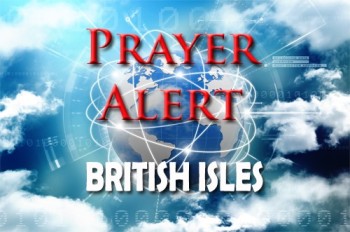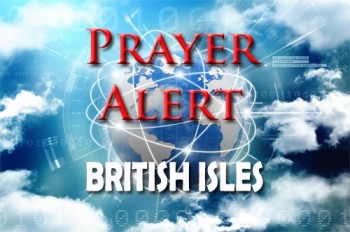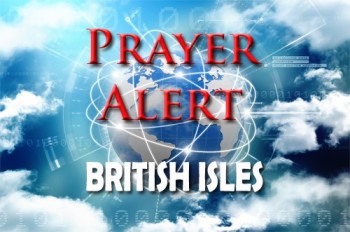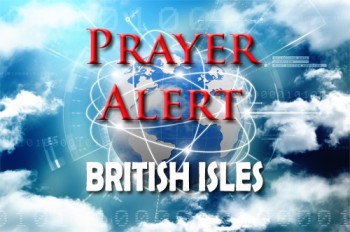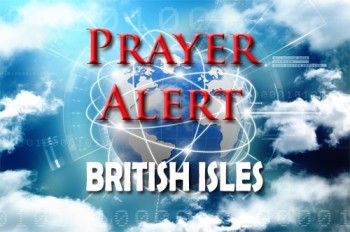Displaying items by tag: challenges
Zimbabwe: new IOC president faces high expectations and big challenges
Olympic swimming champion Kirsty Coventry has been inaugurated as the tenth president of the International Olympic Committee (IOC), becoming the first woman, first African, and youngest person to hold the role. Her appointment has ignited pride in Zimbabwe and hope for broader global inclusion, particularly for Africa and the Middle East. Coventry has described the Olympics as a platform for inspiration and hope, while also vowing to lead on complex issues. One pressing concern is what to do about transgender athletes, especially after recent controversies. She has pledged to create a taskforce involving scientists and federations to revisit gender eligibility policies, prioritising fairness in the female category. Coventry’s first major decision was to pause the 2036 Games bidding process, signaling a desire for transparency and reform. Yet she faces challenges ahead, including rising global tensions and pressure to ensure the Olympic movement remains politically neutral while promoting unity. Her leadership will be tested by both internal reform and external geopolitical strife.
Climate change: government plans are ‘dangerously inadequate’
A scathing new report from the Climate Change Committee (CCC) warns that government efforts to protect people and infrastructure from the impacts of climate change are dangerously inadequate. The report found that of 46 key adaptation measures, none are rated ‘good’, and progress has been glacial or even regressive. Despite climate threats already affecting homes, farmland, railways, schools, and hospitals, adaptation remains a low priority. Forecasts show that by 2050, over half of England’s best farmland and critical infrastructure will be at flood risk, while heat-related deaths could exceed 10,000 annually. Businesses, farmers, and scientists are calling for urgent action, stressing that ignoring adaptation now will bring national security risks and economic costs. The Government may claim that it is prioritising climate resilience, but budget cuts - including to flood defences - cast doubt. Experts, pointing to successful models abroad, are urging clearer targets, better planning, and private sector engagement to prevent worsening climate disasters.
Charities: end-of-life care must be fixed before changing legislation
As Parliament debates assisted dying legislation, several charities stress the urgent need to fix the country’s struggling end-of-life care system. Hospices provide vital palliative care, but funding shortages mean that care quality varies across the UK. Tim Daly, who has learning disabilities and cancer, relies on hospice care to remain at home with his mother Valerie. His nurse, Phoebe Mooney, provides essential support, but working in such emotionally demanding roles is challenging. Many hospices rely on charitable donations, with only a third of their funding coming from the government, creating a 'postcode lottery' for care. One commentator has said that people need assurance of symptom control and support before any changes in the law around assisted dying. Hospice UK’s Charlie King warns that the healthcare system is already under significant stress; introducing assisted dying without fixing end-of-life care could exacerbate the situation. Sustainable funding is essential for quality care. See also Justin Welby’s comments:
Tajikistan: challenges facing the Church
Tajikistan is a beautiful mountainous country; the Tajik language is related to Iranian. After gaining independence in the early 1990s, the country endured a tribal-based civil war that resulted in significant loss of life. Despite having untapped mineral and hydro-electric potential, the economy has never fully recovered from the conflict, poverty is widespread, and it is Central Asia’s poorest nation. Islamic influence has grown, with the construction of impressive mosques and changes in clothing styles. The Church experienced growth in the 1990s but has since stalled, and Christians represent only 0.1% of the population. Local leadership is emerging, and church leaders collaborate to address cultural issues and establish guidelines. Sadly, many church members and even some leaders have emigrated for work or in hopes of a better life. Nevertheless, we praise God for each Tajik believer. Previously dominated by Russian culture and language, the church is now taking steps towards establishing its own identity.
Ecuador: new president sworn in
In October we prayed for the presidential election in Ecuador. Now millionaire Daniel Noboa has been sworn in as president, marking a significant shift in the country's political landscape. A businessman with no prior political experience, he surprisingly won the snap election which former president Guillermo Lasso called to avoid possible impeachment. He will serve only 18 months, the remainder of Lasso’s term. Once considered one of the safest countries in the region, Ecuador has seen violence explode in recent years; there was an unprecedented increase in bloodshed, and drug violence has led to some 3,600 murders so far this year. Noboa has said he will target the violence by tackling unemployment, but also implement a state of emergency, suspend some citizen rights such as freedom of movement, and deploy the military to the streets. There is a considerable sense of uncertainty and anticipation surrounding his presidency.
Micronesia: tug of war
The Pacific nation of Micronesia, with 100,000 people in 607 islands, is currently caught in a political tug of war. Its location makes it a key vantage point for foreign policy. Beijing hopes to gain influence in an area of strategic importance. Yet more important than its earthly political state is the eternal state of Micronesian souls. They largely identify as Christian but cultural influences appear in their religious practice, including animism, magic, narcotics, materialism, and ancestor worship. Nominalism is high among the protestant churches and there is much cronyism among the leadership. One estimate states that 99% of the pastors in Micronesia were appointed with no theological training. The Micronesian church has many challenges, including consumerism influences from America, high delinquency and suicide among the youth, Mormon missionary activity, and the low availability of Bible translations.
Change and challenges
This week the Conservative and Labour Party Leaders delivered speeches with their ideas and policies to tackle the challenges we face. Both agree that only through change will we restore hope and progress. Every new leader has bold ambitions to change the country, then they realise they are not fully in control. What a contrast to biblical hope, which is not uncertain, but solid, sure and reliable. This hope is the hope of glory to come. We live praying for improvements and policies that will uphold the most vulnerable in our society; but we do not depend on that; our happiness is not based on it. We are citizens of heaven (Philippians 3:12), and our hope is stored up in heaven (1 Peter 1:3). Whatever is achieved over the next 18 months, we can be thankful to God that we are looking forward to a city whose foundations can never be shaken.
Israel: new government
Jordan, Saudi Arabia and Egypt are worried that Israel’s new government will spark escalations in the West Bank and Gaza that spill over into their territory. Jordan’s King Abdullah warned Israel, ‘We have red lines, and if people push those red lines, we'll deal with that.’ They already crossed one red line when the coalition guidelines said, ‘Jewish people have exclusive and unassailable rights to the entire Land of Israel. The government will promote and develop settlement in all parts of the land - Galilee, Negev, Golan, Judea and Samaria (West Bank).’ May God bless Israel with effective, stable governance, and may Netanyahu's heart turn to the paths that please God. May God arise, conquer egos, and bring about a desire to do what is best for the nation and not what is best for one's personal political career. Pray for God to arrange the priorities of this coalition to line up with God’s priorities.
Back to the office to save jobs
Companies were forced to give bribes to cajole employees to return to the office last year: free breakfast, ice cream and even popcorn to workers who came in. Now bribes are replaced with stern summons issued to workers still wanting to stay at home. Apple’s chief executive ordered every employee to return to the office three days a week from September. That is the latest in similar demands issued by other companies, who all feel that office life improves productivity. But efforts to lure staff back may not be necessary when the country plunges into recession. Experts and City professionals are now saying workers are keen to get back in front of managers to save their jobs as a crisis looms. However, as the harsh reality of the cost-of-living crisis hits, they will still have to escort some of their colleagues to the door anyway.
Firefighting challenges
Large-scale wildfires are occurring more frequently across the UK. The challenges are enormous: in the middle of nowhere, two-metre-high flames moving faster than anyone can run. It can take days to bring a fire under control, an exhausting ordeal for even the fittest firefighter. An officer said, ‘Wildfires are unlike any other fire, they change on a minute-by-minute basis. One minute a fire is knee-high, the next it’s above your head. It is one of the most arduous fires our crews face. Left unchecked, they rage for miles across the countryside. If the wind changes direction the tail of the fire could become the head, and it spreads in the opposite direction. You can walk for an hour with hand tools wearing boots, jacket, and helmet, before getting to the area you are going to be fighting.’ Conditions are brutal. See also this week’s France article, ‘We are waiting for rain’.

